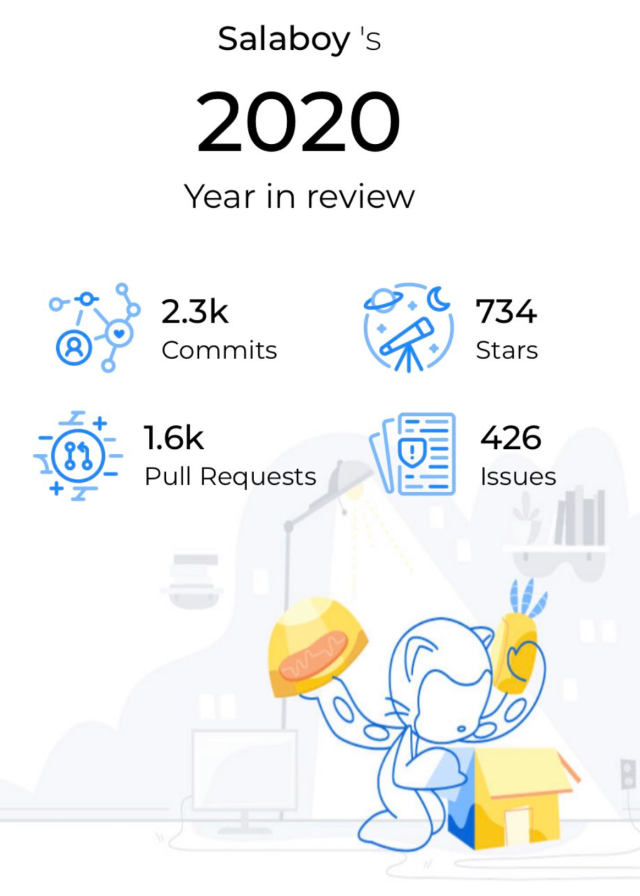2020/2021
This year is coming to a close, and besides the craziness and the lack of trips, I feel it was positive in the learnings and the personal connections that I forged. I connected with amazing people, and it felt like a big year for learning, getting my hands dirty and "seeing the big picture".
Looking back, I've spent a lot of time with projects in the Kubernetes space like Jenkins X, Knative, CloudEvents, Zeebe, Helm and Camunda Cloud. I am still fascinated with how these projects are helping developers improve how Cloud-Native applications are built, deployed and improved over time. Looking at how the Kubernetes ecosystem is growing and expanding is a huge never-ending learning experience.
After working with Kubernetes for more than 5 years, it is fascinating to see how platforms are being built on top of it for developers to build and deliver Cloud-Native applications.
Every platform in 2021 will include CI/CD pipelines, and they are now starting to add "frameworks" like Knative and Istio by default in their managed services. This year, I had the chance to play with External Secrets (originally created by GoDaddy), and it really feels that the Kubernetes ecosystem is maturing in the right direction. Both Knative and External Secrets focus on abstracting the underlying infrastructure and promote multi-cloud setups, allowing your applications to be easily ported between different Cloud Providers. With the Kubernetes Cluster API, now platforms and third-party tools can provide a self-service approach to their users (standardized across Cloud Providers) so teams and developers can provision their own Kubernetes Cluster whenever they need, at the push of a button. Of course, this leads to integration with Identity Management tools for security and teams mappings, providing end to end access to a set of tools that developers really need to work on top of these amazing tools.
I've seen first hand how something simple like CloudEvents will make a huge difference in integrations, allowing different vendors to create different tools all talking the same language. I've also seen how projects like RSocket will need to be integrated with the Knative Semantic for dealing with Events (CloudEvents more specifically) for streaming scenarios.
On the Java Space, the Spring Ecosystem is catching up, in the sense of now supporting CloudEvents as first-class citizens, and these frameworks are evolving to the new Cloud ecosystem. Funny enough, I've submitted a PR, a very dodgy one, in July with an example already working and after less than 6 months, the feature is already out in a Spring Boot version. Spring Boot can also be run on top of GraalVM with a fully reactive stack allowing people to create fast and small runtimes that can be containerized easily. This means that people are building things, and they are going fast.
On the foundation and connecting with people side, I am proud to be part of the Continuous Delivery Foundation (working in the Best Practices and Interoperability SIGs), and I also felt very welcomed in the Knative community, as I presented in their meetup some of the work that I did with CloudEvents, Workflows and Knative. I've met amazing people at the Linode + LearnK8s webinars (Jenkins X on LKE & CloudEvents Orchestration), and I got very positive feedback on my sessions at KubeCon, SpringOne and QCon.
All these experiences contributed to basically mapping out the work that I will be doing in 2021, where I hope to focus more on learning by teaching some of the lessons learnt. I am hoping 2021 to be a year focused on Open Source, building tools and sharing with more communities of developers how these tools can be applied. If you are a developer and want to start, continue or collaborate with my Open Source journey, get in touch via Twitter @Salaboy , my DMs are open, and let's work together on something.

